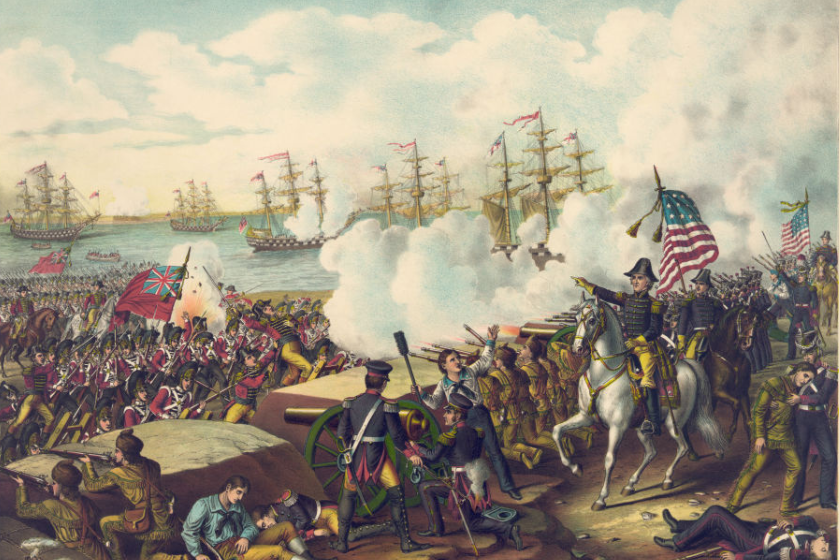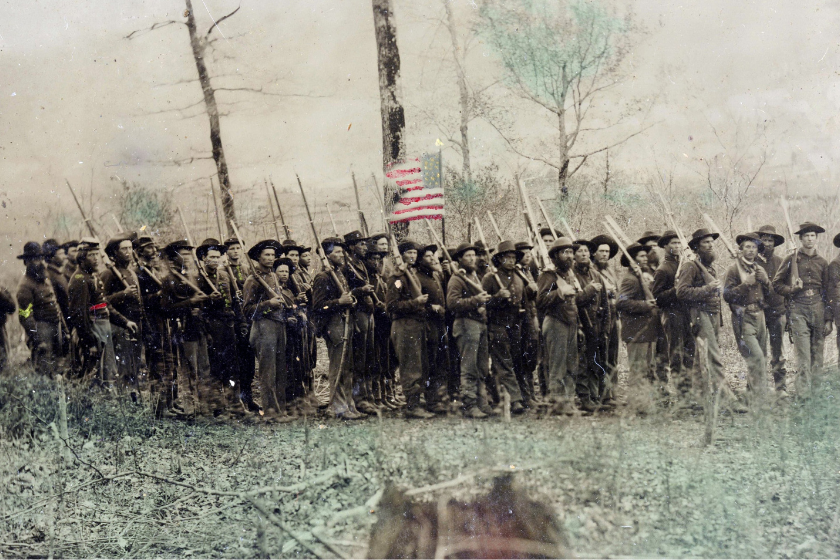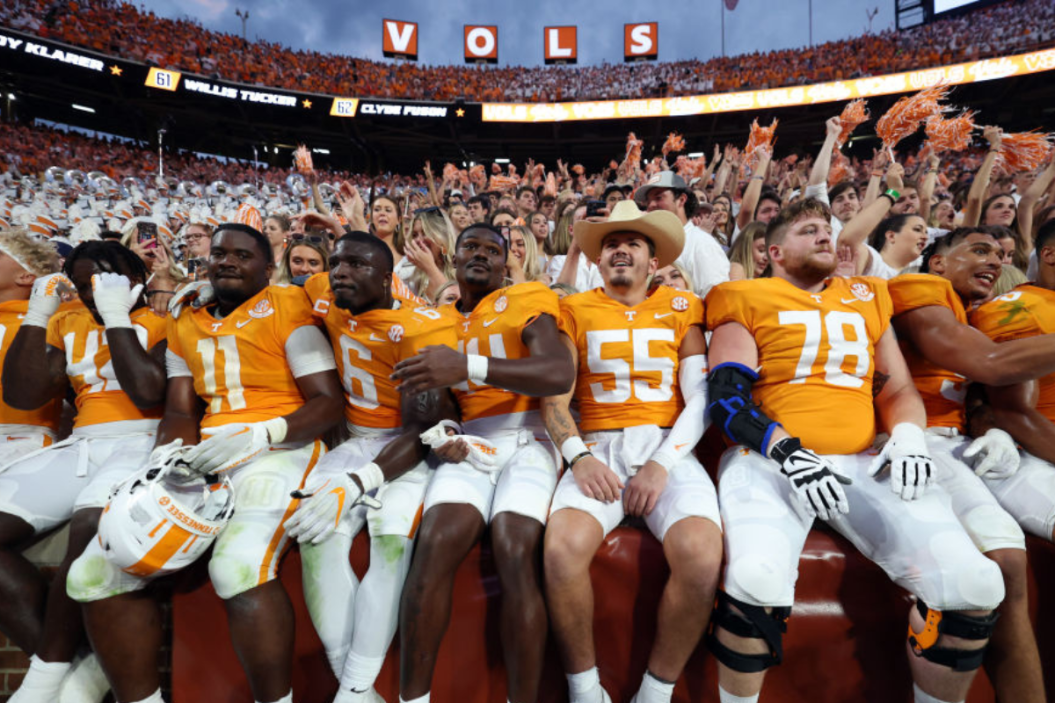In college sports, most team nicknames are clear references to something, whether their mascot is an animal or person. But the University of Tennessee might need a little explaining because not only is it a little random to those on the outside, there is also disagreement on the origin.
Videos by FanBuzz
For anyone familiar with Tennessee, they know it is dubbed "The Volunteer State," which is easily one of the best state nicknames in the country. So obviously, that is where the name Tennessee Volunteers came from, including the women's athletic teams being referred to as the Lady Volunteers. And it also comes as no surprise that Tennessee's state dog is a Bluetick Coonhound, the same as the school's mascot.
But, as the Tennessee football team comes into Neyland Stadium to play meaningful college football games (like the one against Alabama), we thought it was time to explore the origins of the Volunteer nickname given to University of Tennessee athletics teams.
And let's be real, if Nashville's NFL team tried to pry the name away from Knoxville, a civil war would have broken out. Thankfully, the Titans is a perfectly good name and we didn't have any battles along the Tennessee River.
How the Tennessee Volunteers Nickname Originated

Photo by Marvin Gentry/Getty Images
RELATED: Hendon vs Peyton: Tennessee's Two Generational QBs Are a Lot Alike
Although there are some disagreements about when the state got its name, it stems from one general idea: When the country needed people to defend their borders, the state of Tennessee had more volunteers than anywhere else.
So come with us as we explore the Rocky Top history of how the big orange Vols came to be. Trust us, this is the stuff you'll want to tell your friends at your next tailgate on gameday.
War of 1812

Photo by Pierce Archive LLC/Buyenlarge via Getty Images
The first references to the state receiving its nickname comes from the War of 1812, when the United States went to war with Great Britain over England's violation of America's maritime rights. The Tennesseans played a huge role in this war with volunteers accounting for a big part of Andrew Jackson's volunteer militia. This group was vital in the Battle of New Orleans and is what made Jackson a hero of the time and led to him leading the United States forces in the annexation of Florida during the First Seminole War.
Jackson was born in the Carolinas, but he is a famous Tennessean with his work in the state government. He is mostly known now for his fight against Cherokee, Seminoles, and many other groups of Native Americans and American Indians. However, leading the volunteer army against the British and serving on the Tennessee Supreme Court, and later living and dying in Tennessee, it is no wonder the state was considered the face of volunteerism. But some historians don't think this is the point at which the name was given.
Mexican-American War

Photo by: Universal History Archive/UIG via Getty images
Best known for the Battle of the Alamo, the Mexican-American War is either the reason Tennessee is known as the Volunteer State, or just seriously reinforced the idea.
Some of the most famous names tied to the war that led to the Republic of Texas entering the union are from the state of Tennessee. And on multiple occasions during this conflict, it was the people of Tennessee who could be counted on to protect, defend, and volunteer for the southern border and Texas.
While I was growing up, my father would sing the song about Davy Crockett that begins with him being born in the mountain tops of Tennessee. Crockett, after not being reelected to Congress in 1935, told the people of his home state "you may all go to hell and I will go to Texas." He then went and would eventually die at the Battle of the Alamo where there was a total of 33 Tennesseans defending from General Santa Anna and the Mexican Army.
After Crockett and the Alamo fell, fellow Tennessean Sam Houston (born in Virginia but moved to Tennessee) gathered an army to chase down and defeat Santa Anna.
In 1945, when Mexican troops attacked American forces, U.S. President James K. Polk pleaded with Congress to declare war. But with just 8,000 troops, General Zachary Taylor called for reinforcements. So Polk asked for each state to offer 2,600 volunteer soldiers. With news out of Nashville that 2,600 men were needed, Tennessee did what they had shown for decades... they can be counted on. Before the week was up, over 30,000 people came forward.
After the war, the Mexican government allowed Texas to be purchased by the United States, making the Northern Mexican border along the Rio Grande, the river that covers the entire Texas-Mexican border.
No matter the year the state earned its name, they were always showing they were the Volunteer State at heart. And every athletic event, whether it is a football game or another team, anyone watching has it ingrained in their mind that Tennessee state is made up of volunteers, not just Elvis' home, country music, and the great smoky mountains.
This article was originally published on May 10, 2019, and has been updated since.
